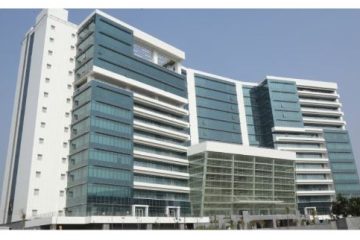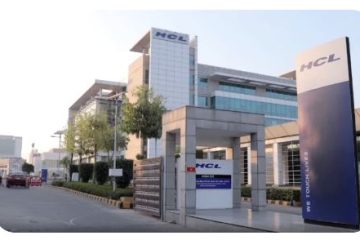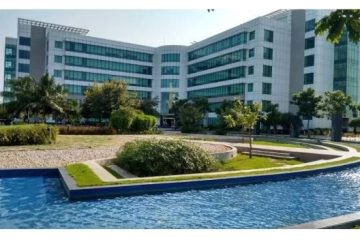Introduction: Energy conservation and efficiency are critical aspects of sustainable building design and construction. The NBC 2016, which serves as a national code for building construction in India, provides guidelines for energy savings in buildings to reduce energy consumption, minimize environmental impact, and promote sustainable development. In this article, we will explore the energy savings requirements as per NBC 2016 and the key strategies to achieve energy-efficient buildings.
Energy Savings Requirements in NBC 2016: The NBC 2016 emphasizes the need for buildings to meet certain energy performance standards to reduce energy consumption and greenhouse gas emissions. The key energy savings requirements as per NBC 2016 include:
- Building Envelope: The building envelope, including walls, roofs, floors, windows, and doors, should be designed and constructed to minimize heat gain or loss from the external environment. Adequate insulation, shading, and fenestration design should be employed to reduce thermal bridging and air infiltration.
- Lighting: Lighting systems should be designed to maximize natural daylighting and minimize artificial lighting usage. Energy-efficient lighting fixtures, lamps, and controls should be used. Outdoor lighting should be controlled and directed to minimize light pollution.
- HVAC Systems: Heating, ventilation, and air conditioning (HVAC) systems should be designed and operated efficiently to minimize energy consumption. Proper sizing, selection, installation, and commissioning of HVAC equipment, ductwork, and controls should be ensured. Energy recovery systems should be considered to capture and reuse waste heat or coolness.
- Renewable Energy: The use of renewable energy sources such as solar, wind, or biomass for electricity generation or heating purposes should be explored and incorporated into the building design, wherever feasible. The NBC 2016 provides guidelines for the installation and integration of renewable energy systems in buildings.
- Building Automation and Controls: Building automation and controls, including energy management systems, should be used to optimize the operation of building systems, monitor energy consumption, and control lighting, HVAC, and other energy-consuming systems. Proper calibration, programming, and maintenance of building automation and controls are essential for efficient energy management.
Strategies to Achieve Energy Savings: To meet the energy savings requirements as per NBC 2016, the following strategies can be adopted:
- Integrated Design Approach: Employ an integrated design approach involving architects, engineers, energy consultants, and other stakeholders to optimize building design, construction, and operation for energy savings. Consider energy performance right from the design stage to ensure proper sizing, selection, and installation of building systems and components.
- Energy Modeling and Simulation: Use energy modeling and simulation tools to assess the energy performance of the building design and optimize it for energy savings. This can help identify the most cost-effective strategies to achieve energy efficiency and meet the NBC 2016 requirements.
- High-Efficiency Building Envelope: Ensure proper insulation, shading, fenestration, and air sealing of the building envelope to minimize heat gain or loss and reduce reliance on mechanical heating or cooling. Use high-performance materials and technologies to improve the thermal performance of the building envelope.
- Energy-Efficient Lighting: Use energy-efficient lighting fixtures, lamps, and controls to minimize artificial lighting usage. Maximize the use of natural daylighting through proper window placement and design. Install motion sensors, timers, and other controls to optimize lighting usage based on occupancy and daylight availability.
- Efficient HVAC Systems: Select and install energy-efficient HVAC equipment, such as high-efficiency chillers, boilers, air handling units, and fans. Properly size, seal, and insulate HVAC ducts to minimize air leakage
Here’s a table summarizing the additional requirements for energy savings as per the National Building Code of India (NBC) 2016:
| Energy Savings Requirement | Description |
|---|---|
| Building Commissioning | Commissioning of building systems, including HVAC, lighting, and controls, to ensure optimal performance and energy efficiency. |
| Building Insulation | Adequate insulation of walls, roofs, and floors to reduce heat gain or loss through the building envelope. |
| Glazing Requirements | Use of energy-efficient glazing, such as Low-E (low-emissivity) glass, to minimize heat transfer through windows. |
| Daylighting | Maximize natural daylighting through proper window placement, design, and shading devices to reduce artificial lighting usage. |
| Renewable Energy Integration | Integration of renewable energy systems, such as solar photovoltaic (PV) panels or solar water heaters, to generate clean energy onsite. |
| Building Automation and Controls | Use of energy management systems, sensors, timers, and controls to optimize the operation of building systems and minimize energy consumption. |
| Building Plug Loads | Efficient management of plug loads, including office equipment, appliances, and other electrical devices, to minimize energy usage. |
| Efficient Water Heating | Use of energy-efficient water heating systems, such as solar water heaters or high-efficiency boilers, to reduce energy consumption for water heating. |
| Efficient Lighting Controls | Use of advanced lighting controls, such as occupancy sensors, daylight sensors, and timers, to optimize lighting usage based on occupancy and daylight availability. |
| Energy Monitoring and Reporting | Installation of energy meters and monitoring systems to track energy consumption, identify energy-saving opportunities, and report on energy performance. |
| Building Maintenance and Operations | Proper maintenance and operation of building systems, including regular cleaning, filter replacement, and system tuning, to ensure optimal performance and energy efficiency. |
Note: The requirements may vary depending on the type and size of the building, climate zone, and other factors. It’s important to consult the NBC 2016 and relevant local building codes for specific requirements and guidelines applicable to your project.


